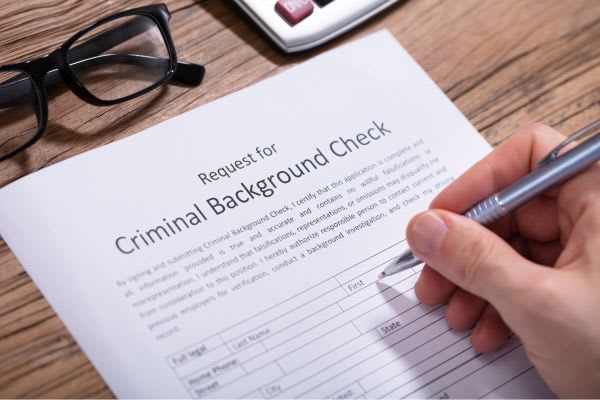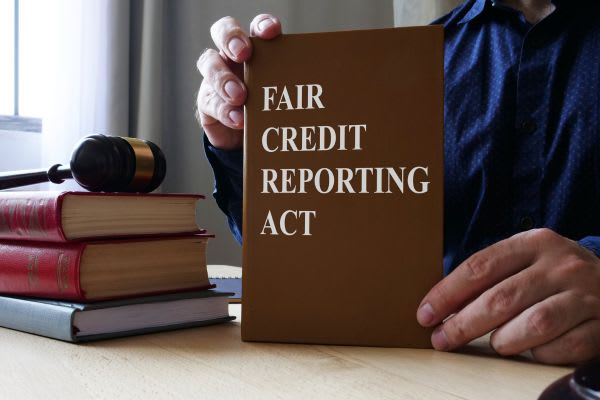Getting a job offer feels fantastic, right? It’s that moment when all your hard work pays off. But what happens when that excitement turns to confusion, or even despair, because an employment background check causes the offer to be withdrawn? “Can a job offer be withdrawn after a background check?” It’s a question many ask, and the answer is often yes, but there are important legal protections in place.
If you’re facing this tough situation, remember that Fair Credit Attorneys are here to help you understand your rights and explore your options.
Contact us at (866) 381-6444 and take the first step toward protecting your credit, your future, and your peace of mind.
Understanding Background Checks
In HR, it’s a key hiring step where a prospective employer verifies your information provided and examines your history. It’s a pre-employment screening that assists in making informed hiring choices. These checks confirm a job candidate’s fit and ensure no risks are present. While a background check shows serious consideration by the employer, it doesn’t guarantee a job offer.

What is a Background Check?
A background check is a review of an individual’s commercial, criminal, and financial records. Its purpose is to verify identity, confirm credentials, and uncover any red flags that might make a candidate unsuitable for a role. This process often involves a consumer reporting agency, which collects and provides this information to the employer.
Common Reasons for Background Check Failures
Why might a background check cause a job offer to be revoked? There are several common reasons:
- Discrepancies in applications: Mismatched dates for employment or education verification.
- Criminal history: Discovery of a criminal record that wasn’t disclosed or is deemed disqualifying.
- Driving record issues: Problems with a driving record, especially for positions requiring driving.
- Failed drug screenings: A positive result on a drug test.
Learn More: The Impact of Incorrect Employment Background Checks
Legal Framework: Reasons for Revoked Job Offers
Background checks in hiring are regulated by legal guidelines to ensure fairness and prevent discrimination. If a background check reveals problematic information, it can result in a revoked job offer. Here are some common reasons:
Criminal Records
A common reason for a failed criminal background check is a criminal record. Employers review this information to evaluate trustworthiness and suitability for the position. One frequent question is, “Will a DUI fail a background check for a job?” A DUI can impact the results of a criminal background check, depending on the nature of the role and how long ago the offense occurred. Not all convictions automatically lead to disqualification, but the severity of the offense and its timing are crucial factors employers consider.
Employment and Education Discrepancies
Employers check your employment and education history through employment verification. If your resume claims you worked somewhere for five years, but records show only three, that’s a red flag. Lying about degrees can also lead to a revoked offer. Though employment verification usually confirms dates and job titles, it might also reveal rehire eligibility, which can hint at a past firing. Sometimes, direct questions about your job departure during the hiring process bring this to light.
Driving Record Violations
For jobs that involve driving, even occasionally, a poor driving record can be a deal-breaker. Repeated violations, license suspensions, or serious traffic offenses can cause an employer to reconsider.
Positive Drug Test Results
Many employers require drug screenings as part of their pre-employment screening. “Does a failed drug test show up on a background check?” A failed drug test directly reports to the employer and is a common reason for a job offer to be rescinded.

Legal Considerations for Employers
Employers have a responsibility to conduct background checks legally and fairly, following a clear background check policy. If they don’t adhere to this policy or violate legal standards, they could face significant legal challenges.
Fair Credit Reporting Act (FCRA)
The Fair Credit Reporting Act is a federal law that governs how consumer reporting agencies collect, disseminate, and use consumer information, including background screening reports for employment purposes. It gives you, the job candidate, important rights. For instance, before an employer can request a background check, they must:
- Get your written permission.
- Provide you with a “Summary of Your Rights Under the Fair Credit Reporting Act.”
If an employer decides not to hire you based on information in a background screening report, they must follow a specific adverse action process to ensure fair hiring decisions. This typically involves sending a pre-adverse action notice, giving you a chance to respond, followed by a final adverse action notice if they choose to move forward with the decision.
Learn More: FCRA Litigation

Understanding “Ban the Box” Laws
“Ban the Box” laws are state and local initiatives that restrict when employers can ask about a job candidate’s criminal history. These laws aim to give individuals with a criminal record a fair chance at employment by delaying inquiries about past criminal convictions until later in the hiring process, often after a conditional job offer has been made. This allows employers to assess a candidate’s qualifications first.
Compliance with State and Local Laws
Beyond federal laws like the FCRA and the Equal Employment Opportunity Commission (EEOC) guidance, employers must also comply with various state and local laws regarding background checks. These laws can vary significantly and may impose additional requirements or restrictions on the types of information employers can consider or when they can consider it.
Rights of Candidates
Even if a background check uncovers something concerning, you have rights. Knowing these rights is crucial.
Accessing the Background Check Report
Under the FCRA, if an employer intends to take an adverse action against you based on a background screening report, they must first provide you with:
- A copy of the background screening report.
- Another copy of “A Summary of Your Rights Under the Fair Credit Reporting Act.”
This pre-adverse action notice gives you a chance to see exactly what information the prospective employer received.
Providing Context for Adverse Findings
After receiving the report, you can provide additional context, such as criminal convictions, by detailing circumstances, rehabilitation efforts, or the time elapsed, potentially influencing the employer’s decision.
Disputing Incorrect Information
What if there are errors in your background check? Mistakes occur. Under the FCRA, you can dispute inaccuracies with the consumer reporting agency. They must investigate and correct any errors found. This process is crucial, as a corrected report could alter your job application result.

Communication Between Employers and Candidates
The communication between an employer and a job candidate during the background check process is strictly regulated to ensure fairness.
Pre-Adverse Action Notices
As mentioned, if an employer is considering rescinding a job offer due to a background check, they must first send you a pre-adverse action notice. This isn’t the final decision, but rather a warning that they are leaning in that direction. It’s a critical step that triggers your rights to review the report and respond.
Providing an Opportunity to Respond
After receiving the pre-adverse action notice, you must be given a reasonable amount of time, usually at least five business days, to review the background screening report and provide any information you believe clarifies or disputes the findings. This is your opportunity to submit additional context or evidence of rehabilitation. The employer must give careful consideration to your response before making a final decision.
Final Decision and Adverse Action Notices
If, after considering your response (or if you don’t respond), the employer still decides to withdraw the job offer, they must send you a final adverse action notice. This notice officially informs you of their decision and typically reiterates your rights under the FCRA.
Related: Walmart background check errors
Proactive Measures for Candidates
While a failed background check can feel like a sudden blow, there are proactive steps you can take to minimize the risk and respond effectively.
Preparing for Background Checks
The best defense is a good offense. Before you even apply for jobs:
- Review your own records: Request copies of your credit report, criminal record from your state’s Bureau of Investigation or similar agency, and driving record. This allows you to identify any potential issues before an employer does.
- Verify employment and education history: Ensure all dates, titles, and degrees on your resume accurately match your official records.
- Be honest: Always be truthful on your job application. Discrepancies are a major red flag for employers.
Addressing Potential Red Flags
If you know there’s something in your past that might appear on a background check, be prepared to address it:
- For criminal convictions: Understand how your state’s Ban-the-box laws might apply. Be ready to explain the circumstances surrounding the event, demonstrate any rehabilitation efforts, and articulate how you’ve moved past it. The Equal Employment Opportunity Commission (EEOC) encourages employers to consider the nature and gravity of the offense, the time elapsed, and the nature of the job.
- For employment gaps or issues: Practice explaining any gaps in employment or reasons for leaving previous jobs in a positive and professional light.
- For education discrepancies: Have official transcripts or certificates ready to verify your education.
Requesting Corrections of Inaccuracies
If you find inaccuracies on your personal reports or in the background screening report provided by a prospective employer, immediately initiate the dispute process with the relevant consumer reporting agency. Correcting these errors is crucial for your future employment prospects.
Protect Your Rights After a Failed Background Check
Navigating a failed background check can be daunting, but understanding your rights and the legal landscape is key. If you believe your rights under the Fair Credit Reporting Act or other employment laws have been violated during the background check process, it’s wise to seek legal advice.
Fair Credit Attorneys are well-versed in these complex regulations and can provide the legal counsel you need to protect your future. Don’t hesitate to contact our Law Firm to discuss your specific situation and ensure your rights are upheld.



